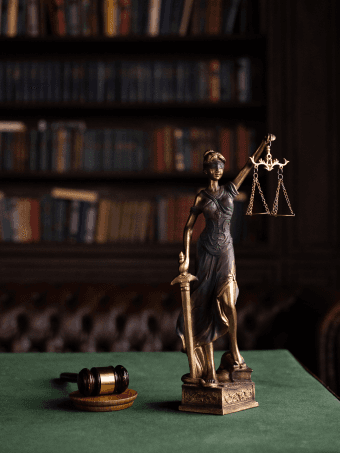
1. Apple: The Price of Trademark Delay
Apple Inc., one of the world's most recognizable and innovative technology companies, is synonymous with innovation, design excellence, and premium quality. However, its iconic logo, featuring a half-bitten apple, has been a subject of contention. Over the years, Apple has faced numerous trademark challenges and disputes related to its products.
In 2007, Apple Inc. faced a significant trademark challenge from the Chinese company Proview Technology over the iPad trademark rights in China. Proview claimed that it owned the rights to the "iPad" trademark in China, leading to a protracted legal dispute. Ultimately, Apple agreed to pay $60 million to settle the trademark dispute with Proview, securing the iPad trademark rights in China.
This outcome serves as a poignant reminder for businesses to prioritize intellectual property protection particularly in regions crucial for their expansion plans. Failure to secure proper legal protections in these markets can not only impede growth prospects but also leave enterprises vulnerable to unauthorized use, counterfeiting, and brand erosion.
2. PRADA: The Rejection of the Iconic Pattern
In a recent development within the fashion industry, PRADA faced a setback in its trademark protection efforts in the European Union. The European Union Intellectual Property Office (EUIPO) rejected PRADA's EU trademark application for a pattern mark, which consisted of a repeating triangle pattern intended for use on various goods and services.
The Board of Appeal (BoA) confirmed the rejection, citing the lack of distinctive character in the pattern. According to the BoA's decision, the pattern comprised basic geometric shapes of black and white triangles, which are commonly found in the industry. Without any verbal or other distinguishing elements, consumers would perceive it merely as a decorative motif rather than a distinctive trademark.
This decision highlights the challenges that even renowned fashion houses like PRADA face in protecting their trademarks, especially in cases where the proposed mark lacks inherent distinctiveness. While PRADA has not relied on proving acquired distinctiveness throughout the EU, the rejection underscores the importance of developing trademarks that stand out as unique indicators of commercial origin.
3. Nestlé: Bitter Loss in the Kit Kat Dispute
Nestlé, the multinational food and beverage company, faced a significant setback in its trademark battle over the iconic Kit Kat chocolate bar. The dispute arose when Nestlé sought to trademark the distinctive four-fingered shape of the Kit Kat bar in the European Union. However, rival confectionery company Cadbury (now part of Mondelez International) challenged Nestlé's trademark application, arguing that the shape lacked distinctiveness and had become associated with the product's functionality rather than its source.
After years of legal proceedings, the European Court of Justice (ECJ) ruled against Nestlé in 2018, declaring that the shape of the Kit Kat bar had not acquired distinctiveness throughout the EU. The court's decision dealt a blow to Nestlé's efforts to secure exclusive rights to the shape of its iconic chocolate bar, highlighting the challenges of protecting trademarks associated with product shapes and configurations.
Despite Nestlé's longstanding reputation and market dominance in the confectionery industry, the loss in the Kit Kat trademark battle underscored the complexities and uncertainties of trademark law, particularly in cases involving non-traditional marks such as product shapes and designs.
4. Adidas: Stripes of Distinctiveness
In a significant trademark dispute, Adidas, the renowned German sportswear manufacturer, faced a legal battle with Shoe Branding Europe BVBA, a Belgian company seeking to use two parallel stripes on its shoes. Adidas had registered a European Union figurative mark in 2014, consisting of "three parallel equidistant stripes of identical width, applied on the product in any direction," for clothing, footwear, and headgear.
Shoe Branding Europe BVBA initiated proceedings for the invalidity of Adidas' trademark, arguing that it lacked distinctive character, both inherently and through use. The European Union Intellectual Property Office (EUIPO) ruled in favor of Shoe Branding Europe BVBA, declaring Adidas' mark invalid. Despite Adidas' challenge to this decision, the General Court of the European Union upheld the ruling in a decision dated 19 June 2019 (Case T-307/17).
The General Court determined that Adidas failed to prove the acquisition of distinctive character through use of its "three-stripe" mark. It emphasized that the mark was a figurative mark, not a design mark, and even slight variations could significantly alter its registered characteristics. The Court dismissed evidence presented by Adidas, including instances where the color scheme was reversed, as they deviated from the registered form of the mark.
Moreover, the General Court upheld the Board of Appeal's assessment that Adidas did not sufficiently demonstrate the acquisition of distinctive character through use across the EU territory, as evidence was provided for only five Member States.
5. Burger King: The Pune Trademark Clash
In August 2024, Burger King Corporation, an internationally renowned fast-food chain, faced a setback in its trademark protection efforts against a small, local restaurant in Pune, India. The dispute originated when Burger King Corporation filed a lawsuit in 2011 against the Pune-based establishment, which had been operating under the "Burger King" name since 1992.
Despite Burger King Corporation's claims of trademark infringement and efforts to halt the Pune restaurant’s use of the name, the court ruled in favor of the local business. The judge emphasized that the Pune-based restaurant had been using the "Burger King" name long before the American corporation entered the Indian market in 2014. The court's decision highlighted the principle of "prior use," granting the local establishment the right to continue using the name.
Takeaway
In an era of rapid globalization, technological advancements, and evolving consumer preferences, the protection of trademarks and intellectual property rights remains a critical priority for businesses worldwide. By implementing robust trademark protection strategies, investing in enforcement measures, and fostering collaboration with stakeholders, companies can mitigate risks and preserve their competitive advantage in the marketplace. However, the experiences of these iconic brands serve as a reminder that trademark protection is an ongoing endeavor, requiring vigilance, adaptability, and strategic foresight to navigate the complexities and challenges of the modern business landscape.


